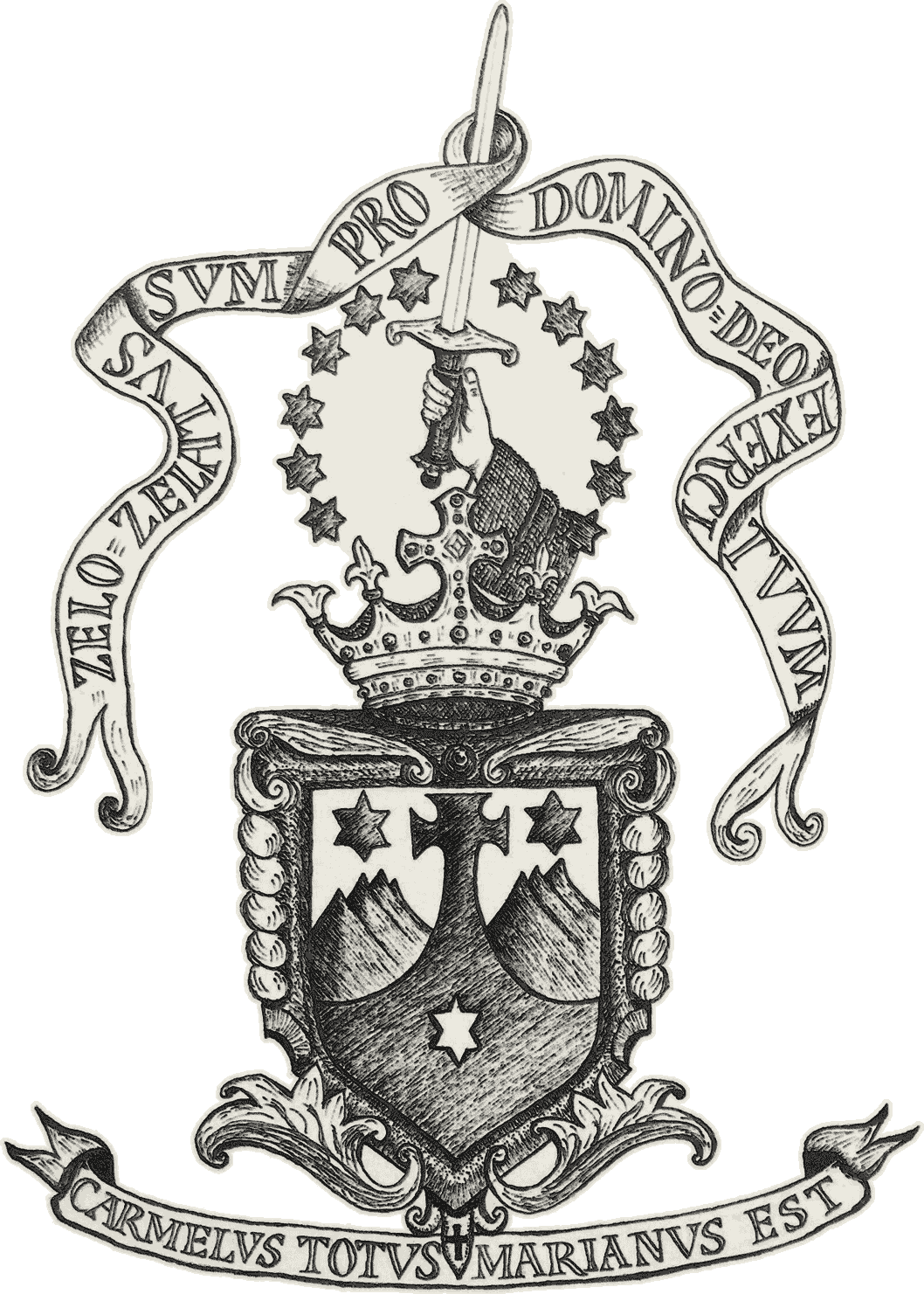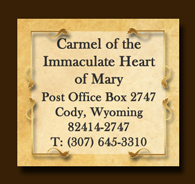Jesus Christ calls certain men to follow Him in the vocation of the ministerial priesthood. According to the Carmelite tradition, these monks, seminarians, transitional deacons, or ordained priests, are known as choir monks.
In common with the lay brothers or those monks not called to Holy Orders, choir monks profess perpetual vows of obedience, chastity, and poverty and exercise spiritual paternity, but in a manner proper to the sacred priesthood after the example of the patron of choir monks: St. John the Evangelist. Through the matter and form of Holy Orders, namely the imposition of the bishop's hands and the consecratory prayer, a choir monk receives an indelible mark on his soul that endures for all of eternity and configures him to the Eternal High Priest, Jesus Christ, Who is both priest and victim.
While the priesthood of Jesus Christ is one, a monk-priest exercises his priesthood distinctly from parish priests or priests engaged in other active apostolates. The Carmelite Father's apostolate occurs within the monastic enclosure and after the manner proper to the ancient Carmelite tradition. Through this hidden priesthood of contemplation, the monk-priest witnesses to the fact that the priesthood must be sustained by a virile, robust priestly spiritual life that is nourished by and ordered towards the Sacraments. Consequently, the choir monk daily offers the Holy Sacrifice of the Mass according to the liturgical richness of the Carmelite Rite and hears the confessions of all those who come to the monastery seeking the forgiveness that God alone can give.
A distinctive dimension of the monastic priesthood, attributable to the profession of the vows, is the emphasis afforded upon priestly humility and fraternity. Having professed the vow of obedience, a monastic priest's labors are governed by obedience where the Father finds ample opportunities for fraternal support, correction, and daily lessons in humility. The monastic priesthood is not one of preaching and teaching, but rather of hidden sacrifice and humble service to the Church and the world from the forgottenness of the monastery. Additionally, the Carmelite Father's pursuit of priestly holiness is sustained and encouraged in the company of the other choir monks and lay brothers who share with him the joys and the sorrows of this life.
Priestly spirituality for the choir monk finds continual reinvigoration in the praying of the Divine Office following the prescriptions of the ancient Carmelite Rite. The choir monk's day is punctuated with the praises of God in the Liturgy where he lifts his voice chanting the Gregorian melodies with the other choir monks on which account the name choir monk
arises. From the graces drawn down upon the world through the Liturgy of the Hours, the choir monk's pastoral ministry emerges. While physically contained within the enclosure, the monk-priest exercises a priestly life of unimaginable fruitfulness in the mystical order wherein a Carmelite Father's parish extends far beyond parish boundaries and spiritually embraces all people in all places. A choir monk's priestly heart is, wherefore, universal.
Inseparable from the Carmelite tradition, the vocation to be a choir monk has an essentially Marian character. The Carmelite Father finds his priestly vocation continually strengthened and augmented through a lifelong imitation of the ever-Virgin Mother of God. The Marian dogmas, doctrines, and devotions are tirelessly defended and promoted by the choir monk who, like Our Lady, seeks only to be an instrument used by God for His glory and the salvation of souls.
Distinct from other traditions, the Carmelite Monks of Wyoming encourage and foster priestly vocations within the monastery. While the vocation to Carmel and to the charism of the community must be foundational, nonetheless God certainly is calling some men to the double martyrdom of the vows and of the ministerial priesthood. Thus, the monastery fosters the priestly vocations of its members and ensures an orthodox, dynamic, integral initial and ongoing priestly formation of the choir monks. The intellectual formation of the choir monks occurs through a partnership with Holy Apostles College & Seminary in Cromwell, Connecticut, while the other three pillars of priestly formation (human, spiritual, and pastoral) are governed by the monastery's program of priestly formation in accord with the 2016 Ratio fundamentalis of the Congregation for Clergy.

